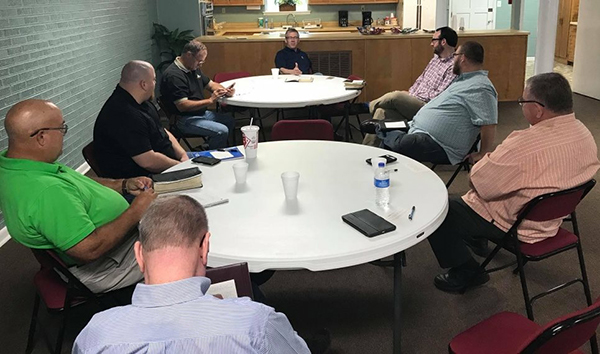Over the years Rob Paul has consulted with dozens of churches that needed revitalization. Some were on death’s doorstep, he said. Others didn’t even realize they were headed toward trouble.
“They appeared healthy,” he said. “A few of them were even growing. Most of them had a lot of activity and plenty of money. But all of them needed church revitalization.”
How do you know if your church needs revitalization? And what do you do about it if it does? Paul, a former Alabama Baptist pastor, decided recently that there’s such a big need for churches and pastors to walk alongside each other in figuring these things out that he started the Revive and Revitalize Network for pastors of small-to-medium-sized churches.
Networking
“I’m involved in a couple of networks myself, and I know how valuable those have been,” said Paul, who has done revitalization consulting work off and on since 2012 and now does it full time.
His network is for any church that “is finding itself struggling and feeling the need to get unstuck,” he said. It offers monthly online video helps and access to a closed Facebook group of other leaders who can share encouragement and ideas. It also offers access to consulting services from Paul.
He listed these eight factors as signs you might need some support:
- Plateaued or declining attendance. Sometimes if the decline is gradual churches may not even notice or believe it’s happening, Paul said.
- Lack of evangelistic fruit. Look at how many baptisms are happening and celebrate every baptism, he said. But also assess whether these are adult baptisms — people being won to faith — or simply the children of adult members.
- Church does not reflect the community. If there’s no evangelistic fruit growing in the congregation, there will come a day when the church doesn’t look like the community around it anymore. “That is a major sign of impending trouble,” Paul said. “God has placed each church in its community for such a time as this. The church should reflect the community ethnically, generationally, culturally and economically.”
- Missing generations in attendance or leadership. Is there a whole generation missing? Are there any church members under age 50? It’s important to look at these factors and ask why, Paul said.
- An idealized vision of the past. If people are longing for “the good old days” of the church, this can be a sign your church is not in a healthy place, he said.
- Preoccupation with other churches. Is there jealousy or wondering why your church can’t do or have what another church has? “When a church is overly focused on what other churches are doing it is heading for trouble,” Paul said.
- Competing agendas within the church. Whether it’s the music style or something else, when there are competing agendas, the pastor is constantly bogged down in having to intervene and redirect, Paul said.
- Allowing a person or group to exercise power and control. When an individual or group that bullies the other members is allowed to be in charge of a church, the church can’t grow, Paul said.
All of these things can be assessed and helped with the support of others, he said.
Tommy Strickland, pastor of Ridgeview Baptist Church, Talladega, said he recently got to sit down with a group of pastors in his area and talk through their needs with Paul.
“It was a time when we could say, ‘Here’s a legitimate concern I have in my church or community,’” Strickland said. “Talladega churches are facing a shifting demographic. We’re in an area not seeing new growth and the whole community is kind of stagnant and churches are stagnant.”
Being in a network setting got everyone on the same page like players on a team, he said.
“It was more ‘how can we grow the kingdom’ instead of ‘how can we grow our church.’”
Strickland said nothing is off the table right now as far as he is concerned.
“We want to reach people for Christ, and if that means bringing in someone with an outside view and fresh eyes, we want to do that,” he said.
State Board resources
Another place where churches can find revitalization resources is through the Alabama Baptist State Board of Missions (SBOM), which provides coaches and church assessments with costs covered by Cooperative Program funds.
Tim Cox, pastor of Liberty Baptist Church, Chelsea, said he called the SBOM after church leadership realized the congregation was in a five-year plateau and wasn’t as effective at reaching the community as it could be.
“We called a partner to come in and help us identify needs, identify challenge areas and help walk us through a plan of action toward a healthier ministry today,” he said. “We have seen the impact of revitalization — new life, new energy, new strength, with more people attending, an increase in giving and a vibrancy in the congregation celebrating what God is doing.”
________________________________________________________________
For more information about the SBOM’s church revitalization ministry, visit alsbom.org/revitalization or call 334-613-2210. For more information about Rob Paul’s ministry, visit robpaul.net.






Share with others: